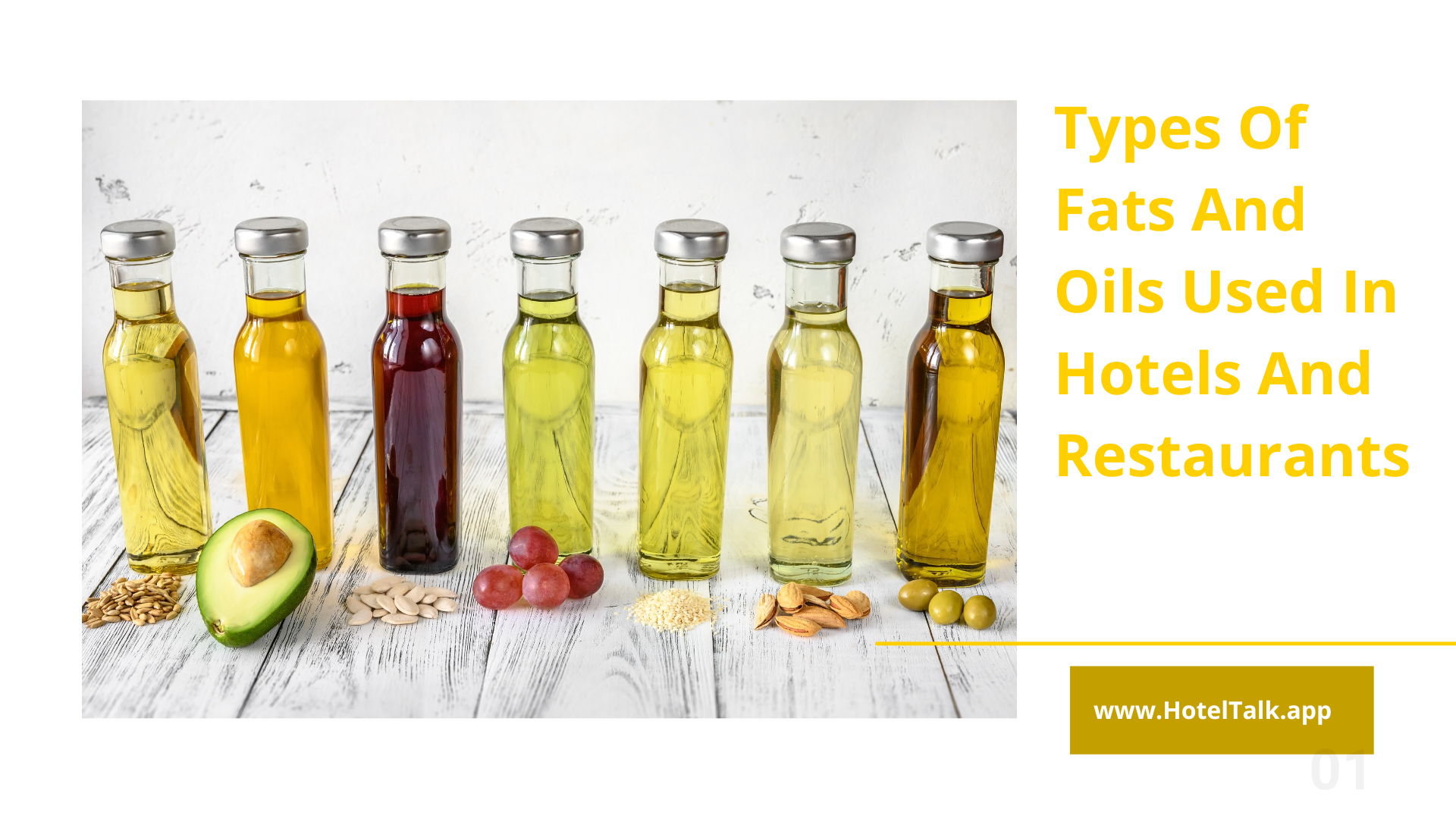1. Olive Oil
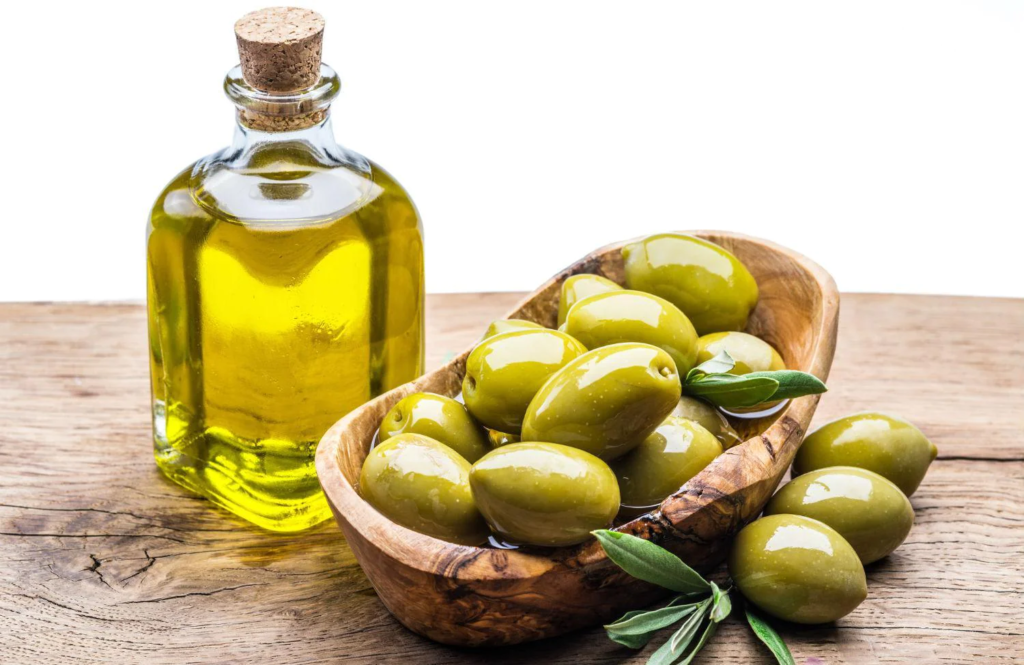
This heart-healthy oil is rich in monounsaturated fats and is commonly used for dressings, marinades, and sautéing.
2. Canola Oil
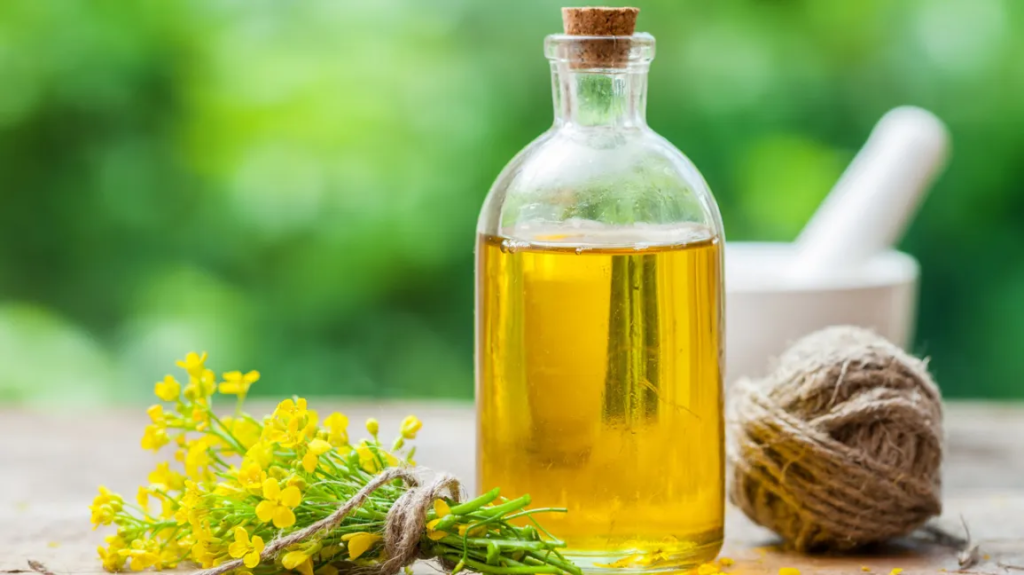
With a neutral flavor and high smoke point, canola oil is ideal for frying, baking, and grilling.
3. Coconut Oil

This trendy oil has gained popularity in recent years due to its potential health benefits. It’s often used in vegan cooking and baking
4. Butter
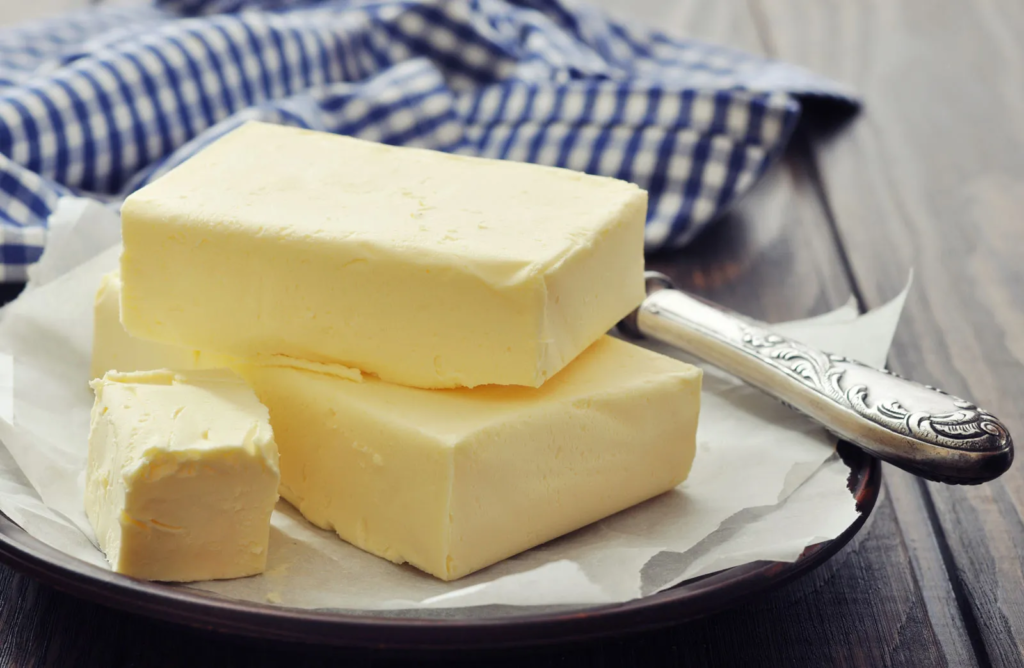
Despite its high saturated fat content, butter remains a popular ingredient in many dishes due to its rich flavor and creamy texture
5. Animal Fats (such as lard or tallow)
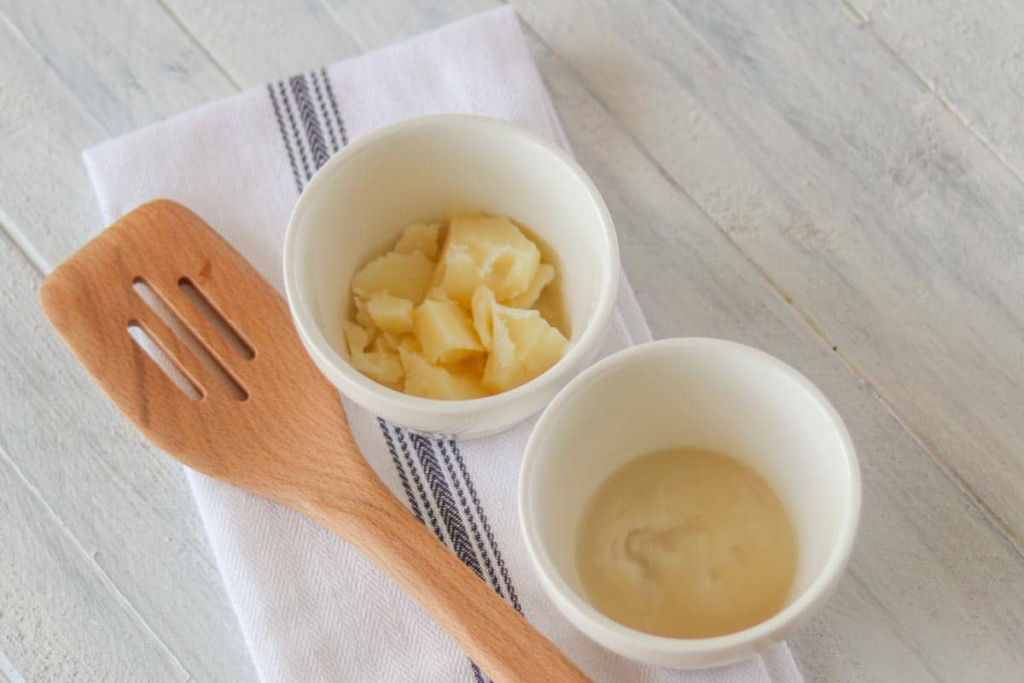
Used for deep frying or making flaky crusts in baked goods. They have a distinct flavor that can add richness to dishes.
6. Peanut oil
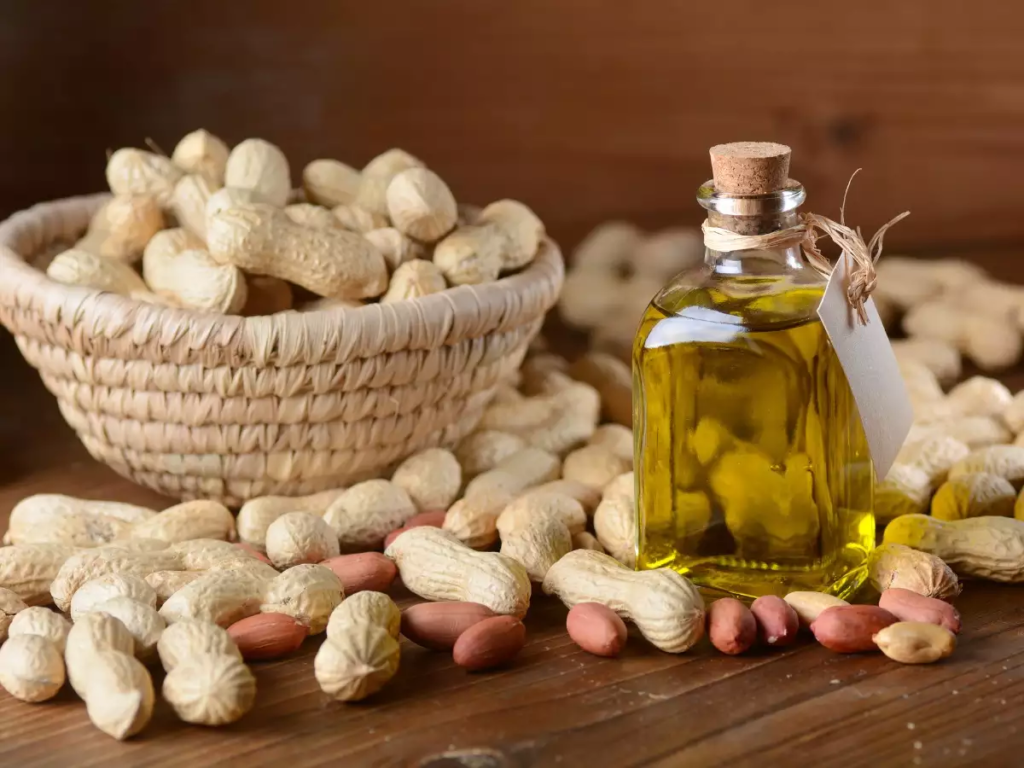
Peanut oil is a popular cooking oil used in hotels and restaurants around the world. It is extracted from peanuts and has a high smoke point, making it ideal for deep-frying. The oil is also rich in monounsaturated fats, which are considered to be healthier than saturated or trans fats found in other oils.
7. .Sunflower oil
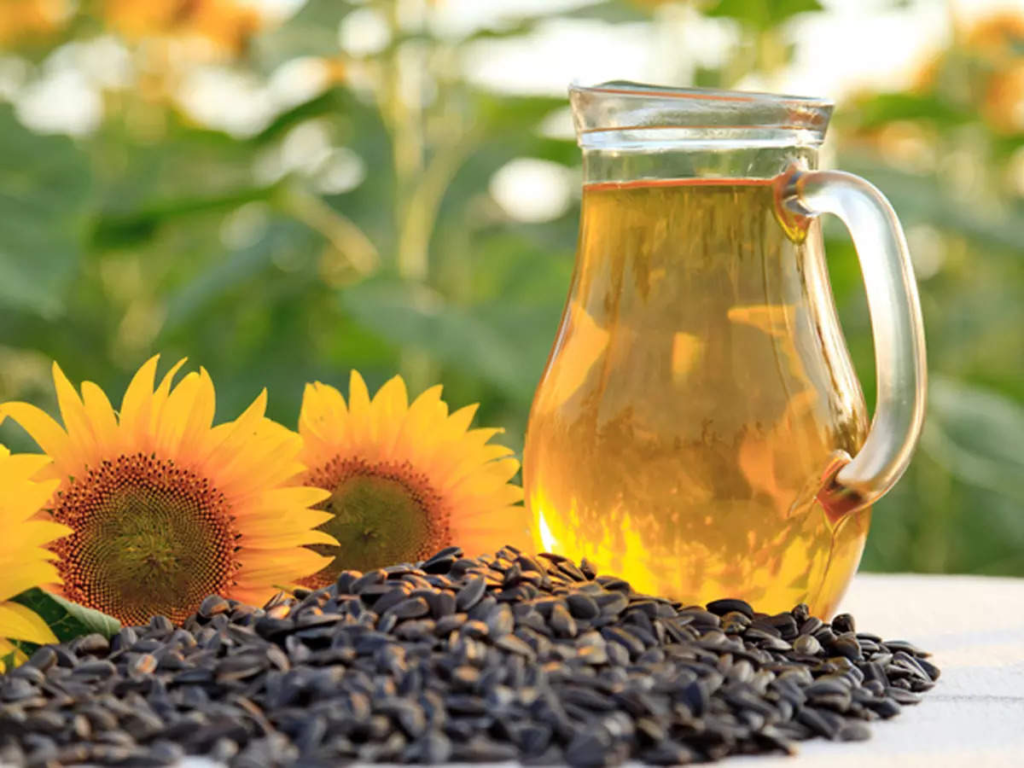
Sunflower oil is a popular choice for cooking in hotels and restaurants due to its many benefits. This type of oil is low in saturated fats and high in healthy monounsaturated and polyunsaturated fats, making it a healthier option compared to other oils. It also has a neutral taste that does not overpower the flavor of food, making it versatile for use in various dishes.
8. Avocado oil

Avocado oil has become increasingly popular in the hospitality industry as a healthier alternative to traditional cooking oils. It is known for its high smoke point, which makes it suitable for high-temperature cooking methods such as frying, grilling or roasting. The oil is derived from the flesh of avocado fruit and contains healthy monounsaturated fats, antioxidants and vitamins.
9. Margarine

Margarine is a popular alternative to butter in hotels and restaurants, due to its lower cost and longer shelf life. It is commonly used for cooking, baking, and spreading on toast or bread. However, the use of margarine in these establishments has been a subject of controversy in recent years.
10. Sesame oil
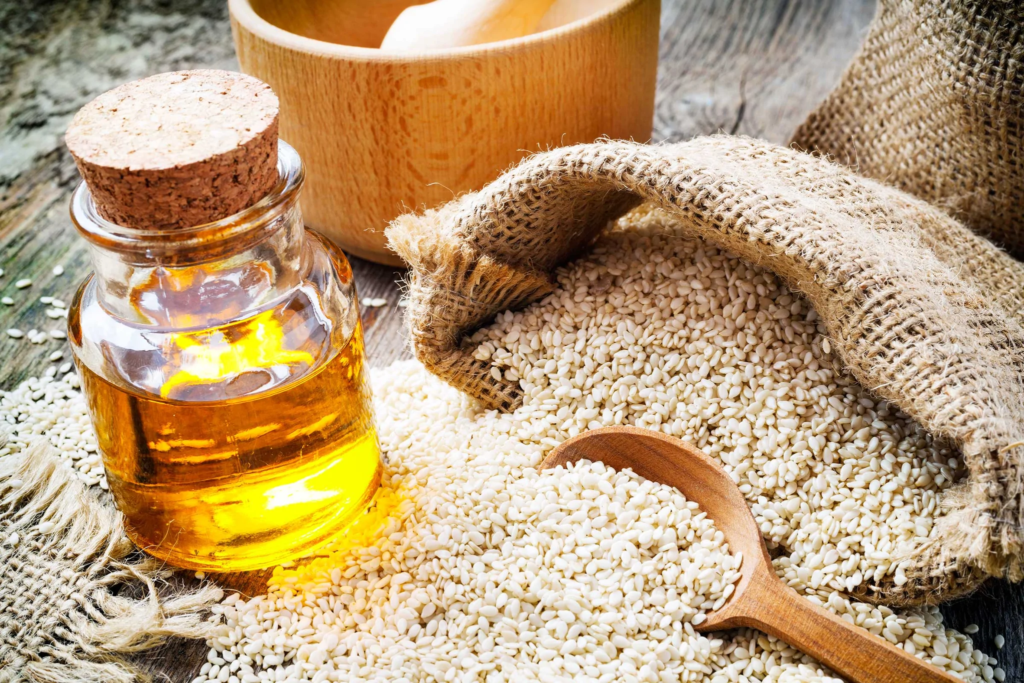
Commonly used in Asian dishes for its nutty flavor and aroma, sesame oil is also believed to have health benefits.
11. Truffle oil
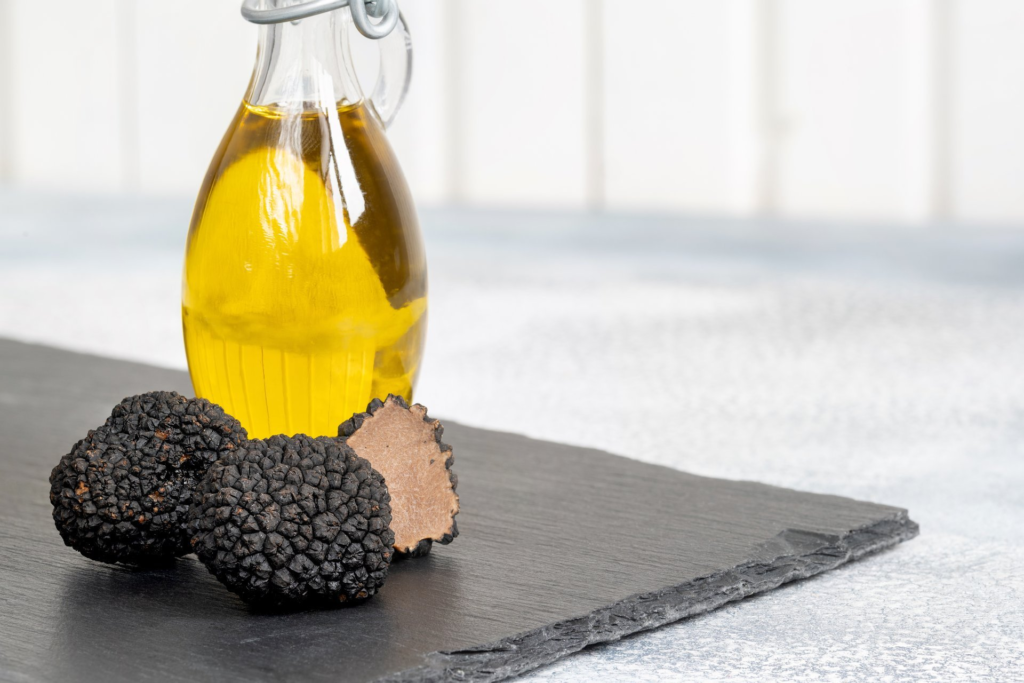
A specialty oil infused with truffle flavor that is used to add depth to dishes such as pasta or risotto
Importance of using the right fat/oil type.
In the world of cooking, fats and oils are essential components. They add flavor to our dishes, act as a heat transfer medium, and even provide health benefits when used in moderation. However, not all fats and oils are created equal. The type you use can have a significant impact on the taste, texture, and nutritional value of your meals.
For instance, using saturated fats like butter or coconut oil can elevate the richness of your food but can also increase your risk for heart disease if consumed excessively. On the other hand, unsaturated fats like olive oil or avocado oil contain healthy omega-3 fatty acids that aid in reducing inflammation in the body and promoting better heart health.
In conclusion, choosing the right fat or oil type is crucial for achieving both culinary excellence and optimal health outcomes. Experiment with different varieties to discover which ones work best for your preferences and dietary needs.
